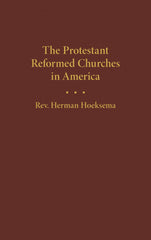Your cart is empty now.

Gospel Truth of Justification (4): Instructive
Good sermons edify. That is, they are instructive and spiritually build up the hearers. When, according to their professors, students in the Protestant Reformed Theological School are deemed ready, they are licensed to speak a word of edification in the churches. When sermon critic committees bring their reports to synod regarding the sermons given by seminarians at their synodical exams, a judgment is made whether or not the sermons are edifying. A primary responsibility of elders in their oversight of the minister is ensuring that his preaching is edifying. The congregation must be built up, grow in their understanding of the Reformed faith and be encouraged in a godly and antithetical walk.
This attribute of edification is a must in theological writing as well. And the believing reader of Gospel Truth of Justification will be edified! If the material in this book was the subject matter of a seminary course, I doubt that the material could properly be treated in one semester. The author treats the truth of justification from every possible angle and leaves no stone unturned. The wise reader, willing to receive instruction, “will be yet wiser” and the “just” reader, willing to learn, “will increase in learning” (Prov. 9:9).
Limiting myself, there are three particular aspects of justification covered in this book, that I would like to highlight in this post. The first is that, as the Reformed confessions clearly teach, justification is a legal act of God whereby the perfect righteousness of Jesus Christ is imputed to the account of the elect sinner (p. 93). That justification is “strictly a legal act of God” that dramatically changes “the justified sinner’s standing before God the just judge,” (p. 94) makes plain what justification is not. “Justification is not the infusion of righteousness into the sinner” (p. 94).
That justification is not the act of God that makes the sinner holy is important to maintain. Why? “Basic to the heresy of justification by works as proclaimed both by the Roman Catholic Church and by the federal vision is the teaching that justification is, at least partly, the infusion of righteousness. This doctrine of justification enables both Rome and the federal vision to conclude that God justifies sinners partly by their own good works, which they perform by virtue of the infusion, and that the righteousness of justified sinners…is at least in part the sinners’ own good works” (pp. 94, 95).
Further, it is important to maintain that justification is not the infusion of righteousness into the sinner because this is to confuse justification and sanctification. Sanctification is the distinct “saving work of God within sinners that makes them obedient, that imparts the obedience of Jesus Christ to them so that they begin to be good and to do good, that infuses obedience into them” (p. 111). Confusing justification and sanctification has the harmful effect of robbing the people of God of their joy and peace. It detracts from the obedience of Jesus Christ as the complete righteousness of the believing sinner, as though the obedience of the sinner must be added to the obedience of Jesus for the sinner’s righteousness with God” (pp. 112, 113). Always the sinner will ask himself, “Have I done enough, have I worked hard enough to please God?”
A second aspect of justification worthy of highlighting is the connection between advocating a conditional covenant and a denial of justification by faith alone, without works. In the chapter entitled “Paul and James,” Engelsma explains that in “conservative” Reformed and Presbyterian churches the root of the denial of justification by faith alone is “their emphatic teaching of a conditional covenant” (p. 432). Their claim is that proclaiming justification by faith alone will make men “careless and profane,” will lead to “antinomianism” and threaten “a responsible, zealous, holy life” among members of the churches (pp. 432-435). Therefore, in order to combat this “alleged fear,” a conditional covenant must be preached. The conditions of faith and faith’s good works must be met, motivating (scaring) the believer to obedience.
This reasoning is warned against in Article 24 of the Belgic Confession, which reads in part, “Therefore it is so far from being true that this justifying faith makes men remiss in a pious and holy life, that on the contrary, without it they would never do anything out of love to God, but only out of self-love or fear of damnation.” The Heidelberg Catechism in Lord’s Day 24, Q & A 64 states, “But doth not this doctrine make men careless and profane?” “By no means; for it is impossible that those who are implanted into Christ by a true faith should not bring forth fruits of thankfulness.”
Engelsma leads the reader to the one reason the justified Christian brings forth good works and leads a holy life: “love for God.”
Love for [Christ], and for the God who gave him as our redeemer (as we realize in the gift of justification by faith alone), motivates us to serve him and God—gladly, willingly, freely, wholeheartedly, sacrificially—in thankfulness. Only this motivation of the Christian life is pleasing and acceptable to God. This motivation of the truly Christian life is worked and secured only by the gospel truth of justification by faith alone (p. 441).
Finally, the relationship between justification and election is worthy of highlighting. Engelsma calls this a “close, necessary, and significant” relationship (p. 455). “Election,” according to Canons 1.7 includes the bestowal upon the elect of “true faith, justification, and sanctification.” Canons 1.9 teaches that “election is the fountain of every saving good, from which proceed faith, holiness, and the other gifts of salvation.” The author points out that among those saving goods is justification. And the “faith” mentioned is the instrument of justification. “That some receive the gift of faith from God” teaches Canons 1.6, “proceeds from God’s eternal decree [of election].” To deny that justification by faith alone has its source in God’s eternal election is gross heresy.
This is the doctrinal sin of federal vision theology which denies that election is the “fountain of every saving good,” including justification, in the covenant (p. 469, author’s emphasis). The federal vision denies that election governs the covenant and, consequently, teaches that “the will of the baptized child does govern the covenant. Hence justification is by faith as a condition and by works!” (pp. 469, 470).
This “alleged fear” of election by contemporary foes of election is exposed by the Bible and the Reformed creeds. Writes Engelsma, “In reality, what troubles the foes of election, particularly as the fountain of justification, is that election leaves no place for their determination that the will of the sinner himself shall be the source of all his salvation....Heretics desire that justification be by the works of the sinner” (p. 473).
Again, as is the case throughout the book, the author is bold to identify heresy that contradicts the Reformed confessions, tear it up by the root, and positively set forth the truth according to the Reformed confessions.
That the contents of Gospel Truth of Justification are polemical, that is, hostile to heresy, will be the subject of the next post.
______________
This article was written by Aaron Cleveland, a member of Hope Protestant Reformed Church in Grand Rapids, Michigan. If you have a question or comment for Aaron, please do so in the comment section.
____________________
Gospel Truth of Justification - A Review (1): Timely
Gospel Truth of Justification - A Review (2): Comforting
Gospel Truth of Justification - A Review (3): Comforting and Confessional
The content of the article above is the sole responsibility of the article author. This article does not necessarily reflect the opinions and beliefs of the Reformed Free Publishing staff or Association, and the article author does not speak for the RFPA.

Donate
Your contributions make it possible for us to reach Christians in more markets and more lands around the world than ever before.
Select Frequency
Enter Amount










